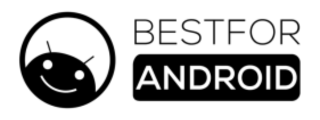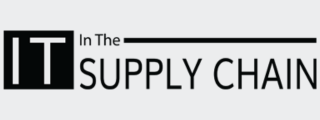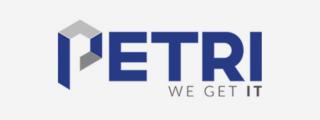





What is Android Device Management?
Android device management refers to the administration and monitoring of Android devices within an organization. The range of device types includes smartphones, tablets, handheld mobile computers, rugged devices, POS (Point of Sale), digital kiosks, and other devices running Android OS. Device management for Android typically uses MDM (mobile device management) software to carry out management tasks across the device fleet. Here are three main purposes of Android device management.
-
Centralized Control
Remote control and manage all distributed devices in a centralized platform. -
Security
Reduce any security risks of lost devices, outdated apps, unauthorized access, and insufficient permission control. -
Compliance
Ensure all devices comply with required regulatory standards.
AirDroid Business Features for Android Management
-
![]()
Remote Control & Support
Keeping safe in remote connectivity, MDM with remote control is able to bring powerful functions as well as essential remote support. AirDroid Business provides the following operations: remote camera, remote view with real-time screen sharing, voice chat, remote reboot, volume control, and more. Manage attended and unattended Android devices with the MDM, whatever are used by customers or employees within the organization.
-
![]()
App Management
AirDroid Business is an MAM tool also. This versatile tool not only supports enterprise apps but also integrates with Google Play Store apps. Features includes force installation, uninstallation, app allowlist & blocklist, app configuration, app permission management, auto-update, auto clear cache and data, and more. Specifically, it supports Staged Rollout so that you can test release an app by percentage, country/area, device ID, and group.
-
![]()
Kiosk Mode
Lockdown Android managed devices with the single app or multi-app kiosk mode is simple. This feature ensures that employees use only safe and necessary software on their devices. Kiosk Browser, a configurable gadget, adds assistance to a secure browsing environment. You can manage whitelist and blacklist for websites and set up incognito mode.
-
Security
Secure mobile workforce and data with these features.
● Enforce password policy
● Factory Reset Protection (FRP)
● Lock screen
● Remote wipe
● Event-triggered Alerts
● Manage certificates to block unauthorized access
● Location tracking
● Storage data mandatory encryption
● Manage Android system updates
● More -
Device Enrollment
Enrollment is the initial step to set up devices and bind them into the Android MDM centralized platform. Methods contain:
● Regular (for below or above Android 4.1)
● Device Owner (for Android 7.0+)
● QR code (for Android 7.0+)
● Android Enterprise (for Android 7.0+)
● Zero-touch (best for bulk enrollment)
● USB (for Android 5.0+)
With a rich set of options, you can flexibly deploy Android devices; meanwhile, no need to worry about OS compatibility issues. -
Black Screen Mode (Patented)
Notably, AirDroid's Black Screen Mode is a privacy-centric technology to darken the remote device screen when it is being repaired. And you can customize an on-screen message to block accidental touches. This sparkling feature allows your IT teams to complete maintenance work without leaking any company data.
-
Automated Workflows
Automated workflows help with facilitating IT tasks in Android management. AirDroid Business provides multiple operations, for examlpe, device reboot, device screen off, factory reset, switch policy/kiosk configured file, notification, group transfer, and more. You can set workflows based on the triggered alert types. -
Geofencing & Tracking
To know the real-time location of the assigned Android devices, you will find geofencing and tracking quite helpful. It gives a map picture with the indications of the devices' location. The feature is appropriate in Android tablet management where devices are used by drivers of transportation or logistics companies. -
Bulk Actions
Having difficulties in managing large-scale devices? You should try bulk device actions. The MDM tool allows IT admins to control devices in bulk and perform actions like reboot, factory reset, lock screen, clear app data, and others at once.
-
Schedule Tasks
For repetitive tasks, IT admins can make good use of the task scheduling feature and set up the execution frequency. There are ten types of tasks (from device performance to apps) to meet basic device management needs. In addition, tracking the task process could not be easier in the Action Logs next to Tasks. -
User Management
One administrator is not enough, especially when facing a large quantity of devices, or across departments and groups. As you add more users to the MDM solution, it is more important to manage them. AirDroid Business makes it easy. Not only is it easy to invite members, but also to assign device groups. -
Reports
Monitoring device performance is a big part of managing corporate devices. In AirDroid Business, reports that focus on various aspects are provided. Here's a list.
● Data Usage Report
● Device Inventory
● Account Activity
● Applications
● Device Availability Report
● Device Connectivity History
● Device Remote Access Report
Video Guides of Android MDM
These videos help in understanding Android mobile device management and setting up devices within minutes.
-
How does Android MDM software work for device management?
Android MDM software combines two parts - controller and controlled end - to make the end-to-end device management effective. Specifically, an Android MDM will provide a web-based portal or PC software to work as the admin console and is used by the IT department. Additionally, it will also provide a subsidiary mobile app that to installed in managed devices so to complete the enrollment process. As devices get enrolled, the IT department can use the portal to monitor, configure, and manage the Android devices.
-
What is Android Enterprise?
Android Enterprise is a Google-led initiative to enable the use of Android devices and apps in the workplace. The program provides a set of features and services that help IT admins deploy, manage and secure their organization's Android devices.
-
What is Managed Google Play?
Managed Google Play is an enterprise version of the Google Play Store. It's a part of Android Enterprise services and need an MDM/EMM provider to carry out the app management features.
-
What is Android Zero-Touch Enrollment?
Zero-touch enrollment is a streamlined process for enrolling Android devices. An MDM solution is needed so that to allow IT admins to deploy corporate-owned devices in bulk without manual setup.
















